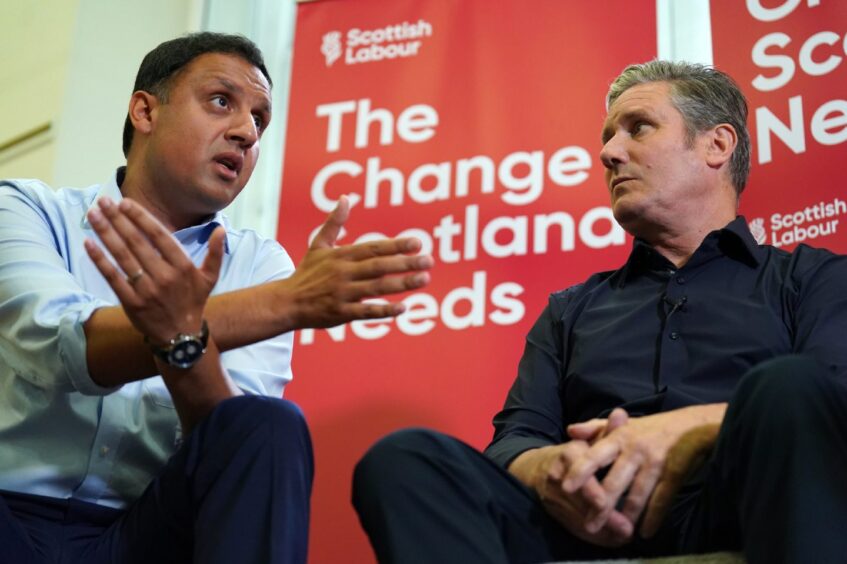
By this weekend, only one poll will have mattered. The implications for the energy sector will be massive; for relative degrees of good or ill.
If there is an incoming Labour government, there will be a whole range of fronts on which the first decision will be whether it is business as usual. Not everything will wait for legislation or bold new initiatives. Without certainty, investment will crank to a halt.
Fine words in manifestos will suddenly encounter realities of practical issues. Political prattle about “just transition” will abruptly be put to the test. Will anything have changed and, if so, what are the implications going to be – above all for jobs that feed families?
Conversations with people working in renewables confirm the scale and immediacy of these challenges.
There is, to say the least, no certainty about delivering the critical blend of investment, subsidy, planning, grid connections, port infrastructure, supply chain and skills that each massive project will require.
To be fair, this state of affairs is by no means restricted to Scotland or the UK. Europe and much of the world are in the same boat.
Indeed, the fact so many countries are trying to do much the same thing on an accelerated timescale has become a significant part of the competitive challenge.
It is the new UK Government that must immediately concern us and will be the home of hard decisions.
What, for example, will be done to ensure success for CfD Allocation Round 6 following last year’s failure of AR5 which set offshore wind back by at least a year when nobody bid?
If there is not enough money in the AR6 pots, the same could happen again. There is certainly no shortage of alternative destinations for renewables investment. Beyond that, the wider question for an incoming government is whether to persist with the Contract for Difference model at all.
The Tories became attached to it because competition initially drove down costs. Then AR5 dramatically confirmed the limits of that assumption. Investors will not sign up for the prospect of loss. The outgoing government reacted with a big increase for AR6 – but will it be enough and how will it be distributed?
As one renewables developer told me: “Investment committees no longer have confidence in the stability of the UK market. All eyes are on AR6. If it doesn’t deliver, a lot of global capital will give up on the UK”. An interesting challenge for an incoming minister!
That issue alone entails a level of policy granularity which does not feature in manifestos, but everything promised depends on real world answers to such imminent questions. And it’s not just wind – so far CfD has proved largely unhelpful to evolving technologies like wave and tidal.
An incoming government must not fail to get this right. Then, with a bit of time, look at the whole support system for renewables.
Maybe it’s time to roll back 20 years and recall that the system of Renewable Obligation Certificates actually worked. It gave investors certainty and encouraged innovation over wasteful competition. I’m not sure why it was changed!
Labour’s manifesto recognises that “the national grid has become the single biggest obstacle to deployment of cheap, clean power generation and the electrification of industry. With grid connection dates not being offered until the late 2030s, important business and infrastructure investment is being stalled or lost overseas”.
This is an accurate analysis and extremely relevant to the pace of transition. While we are assured that “Labour will work with industry to upgrade our national transmission infrastructure and rewire Britain”, the means of translating that into delivery are yet to become clear.
GB Energy is an excellent policy in principle as a vehicle for investment and other interventions. A strong public sector body should have existed all along to drive energy transition instead of the jungle of overlapping responsibilities which has proved more likely to obstruct than facilitate.
However, GB Energy’s role is yet to be clearly defined and will not appear overnight.
Personally, I have long believed that Ofgem has far too much power where political decisions should be taken by ministers in line with policy objectives, rather than frustrated by regulatory dogma.
Put all this together and the agenda for an incoming government looks more like good intentions than the guarantor of an energy transition at the pace promised.
That is not a criticism but merely a recognition that there are a huge number of complex moving parts which make outcomes uncertain and timescales unpredictable.
All this, of course, impacts the other side of the “just transition” equation. Reliance on fossil fuels can only diminish at the pace of replacement by alternatives.
Accepting that reality does not mean embracing a conspiracy to slow down the transition – only to recognise the genuine challenges will not evaporate because there has been an election.
That is why I have argued that “flexibility” should be one of the essential watchwords surrounding energy policy. On top of domestic policy challenges, there are global ones which have had a nasty habit in recent years of impinging upon energy-related assumptions. Who knows what lies ahead?
The duties of government will not change – security of supply, affordability and a plausible route to net zero.
I know who I want to hold the relevant levers of power by this weekend – and I also hope they discover quickly how best to use them!
Recommended for you
